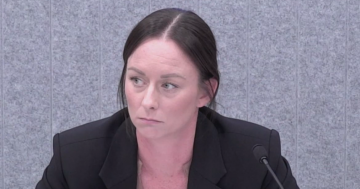[ED (Ntp) – Who says we don’t listen to our readership. Below is LG’s post with my reactionary gripe to the ruling and CT link following the more tag. Thanks also to stan_bowles for the link to the court ruling.]
…………
The ABC has a story the ACT Supreme Court finding an 11 year old boy not guilty of sexually assaulting a young girl at knife point.
The article states that “the boy and another 11 yr old had taken the girl to a park and forced her to get undressed. The 11-year-old then tried to have sex with the girl until other people entered the park and he then ran away”
Justice Higgins “concluded the boy was too young to realise his actions were criminal, and while he had acted out sexual behaviour, he was clearly incapable of engaging in sexual intercourse”.
Now I know the argument of how old do you have to be to be responsible for your actions is an old one and I’m not sure of what penalty (if any) the boy has or will received. But it can hardly be comforting to the young girl in question knowing that despite being forced to do things at knife point, the offender was “clearly incapable of engaging in sexual intercourse”.
A strange, sad story. Can we at least penalise the parents who have obviously done a terrible job in raising their child?
First posted by NTP as: WTF? Higgins has his head up his @r$e!
OK, I might be going off a bit half cocked but our esteemed Chief Justice Terry Higgins has just let of an attempted rapist. The facts not in issue are that the offender accosted the victim, held a knife to her throat and forced her to undress while his friend acted as a lookout. She only got away when other people arrived in the park where the assault was taking place.
The issue is with the offender’s age. He and has mate were both 11.
Justice Higgins said the onus was on the Crown to not only prove the facts, but also, “Had he a guilty knowledge that he was doing wrong?”
…
He found the boy’s actions had not met the criteria of section 26 of the ACT’s Criminal Code, which says: “A child aged 10 years or older, but under 14 years old, can only be criminally responsible for an offence if the child knows that his or her conduct is wrong.”
I’m sorry, why hold a knife to someone if you think what you’re about to do is OK? Why have a lookout unless you are concerned about being caught?
The full Canberra Times article relating to the case can be found here.





















